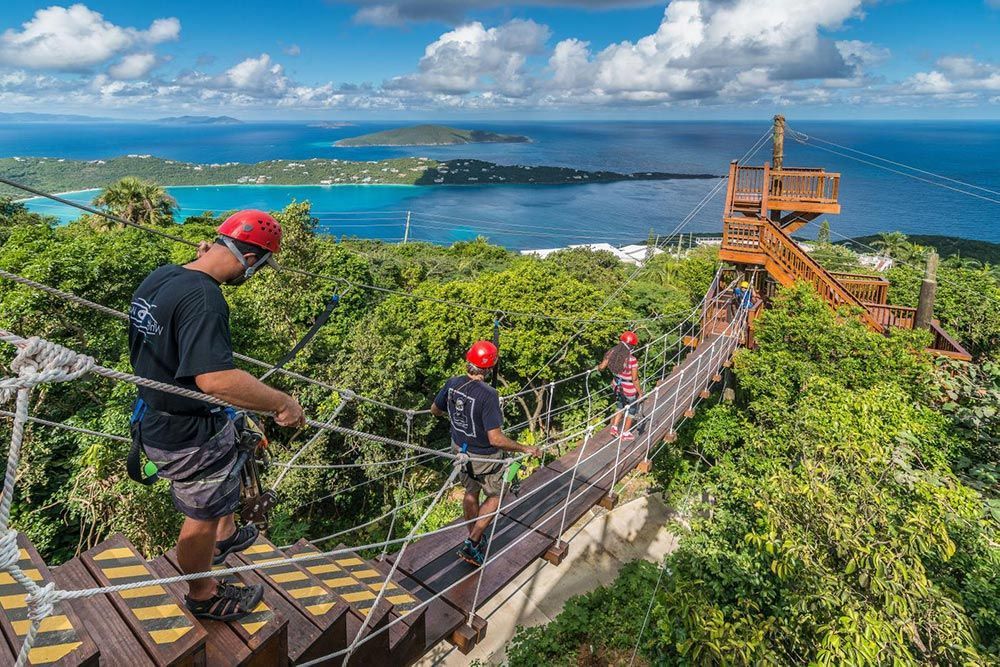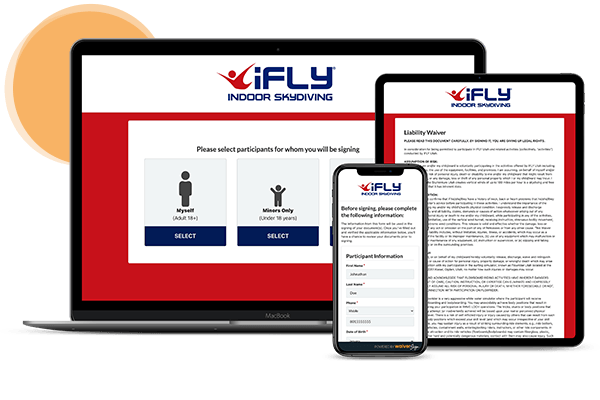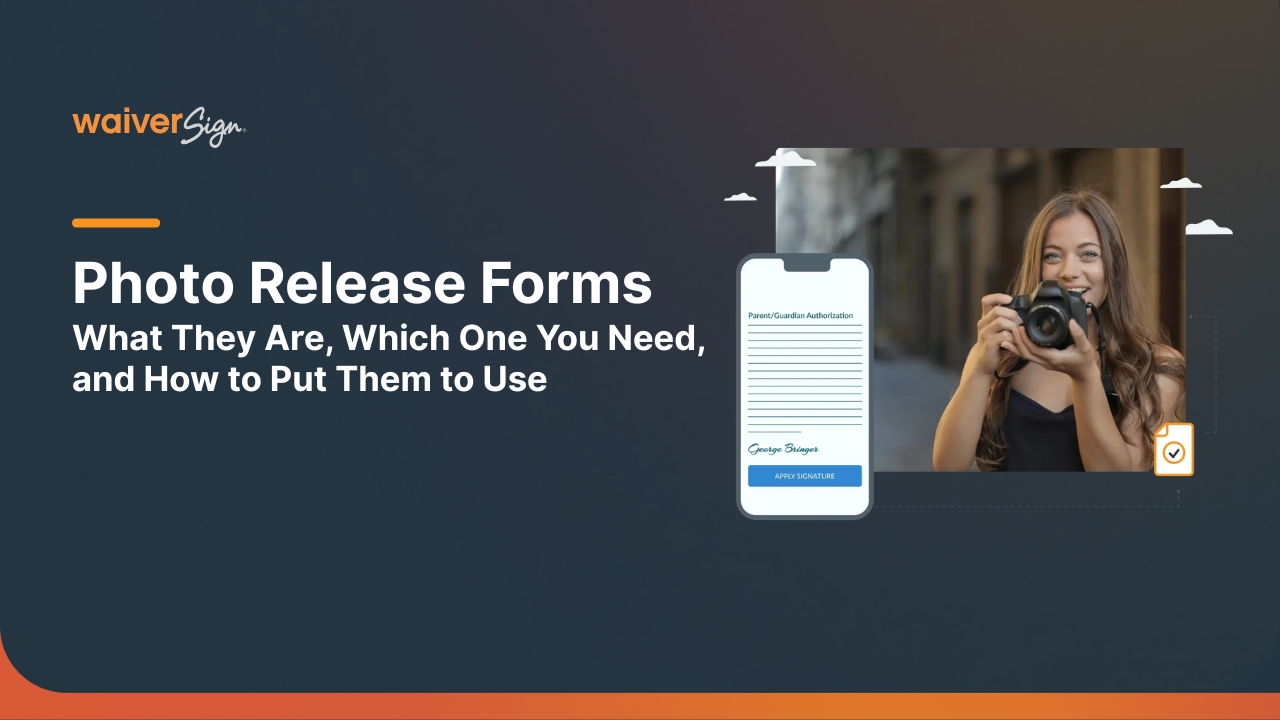What Is a Liability Waiver?
CHUN T. WRIGHT
What is a Liability Waiver & Why Should I Use One?

Chun T. Wright
Washington DC-based attorney and former prosecutor at the US Attorney's Office, Chun serves as legal counsel to businesses across the country.
What Is A Liability Waiver?
In a nutshell, a liability waiver, also known as a release form, release of liability, or waiver of liability, is a legally binding contract between parties that addresses the risks involved in a given activity. In our context, it's between the traveler or participant and the activity operator.
A waiver has two primary purposes. First, it informs participants about "inherent risks," referring to potential risks that a release may be subjected to and must be informed of before signing a release of liability form. Second, it allows participants to release the travel company from the liability that comes with those risks.
Liability waivers are meant to be signed prior to any physical activity or other activity involving potential legal liability amongst parties. In other words, the participant agrees, in advance of an incident occurring, not to hold the travel company accountable for harm relating to various risks, including a company’s negligence, in a court of law. This is sometimes referred to as a hold-harmless agreement, as you are effectively agreeing that you were made aware of the inherent and other risks associated with the activity. This differs from a settlement, where a participant agrees not to pursue a lawsuit or any legal action after an incident. This usually involves some financial offer and corresponding legal documents..
At the end of the day, a liability waiver or release is a legally binding document that educates your guests and protects your business.
If you're an event organizer, a waiver of liability form is a great way to make sure that you are not held legally responsible in the event of incidents causing injury, illness, or death. It's also important to create waiver forms that are designed for parents and guardians to sign for minors. This will help in cases like field trips or activities where kids cannot responsibly sign for themselves.

Online Waiver Software Built for Your Business
Paperless. Contactless. Simple. Get organized and stop worrying about waivers today.
Why Should You Use A Liability Waiver?
The most obvious reason to use a liability waiver, or release form, is that travel companies want to protect themselves from claims of injuries or damages that arise from mishaps that might happen on a trip. This can be for physical injuries, financial ramifications, or other unique circumstances. Mitigating liability—especially in the adventure-travel industry—is a serious concern, and waivers go a long way toward doing that. After all, the last thing a company wants is bad word of mouth and a lengthy legal dispute.
As previously mentioned, another reason to use a waiver form is that it educates the traveler about the potential risks of a trip. This general rule is key since not all members of the public are willing to accept those inherent risks with certain activities. For those people, a release of liability form serves as an important screening tool for any specific event or sponsoring department within the organization. It can give a potential releasor or signing party the chance to decide whether the activity is right for them before they fully commit to it.
While you certainly want as many people as possible to book trips through your company, a small percentage of those people may not be right for that activity, even if they're willing to spend any amount of money. They may be frightened by the experience or angered by the risks involved, especially fearing the ramifications that may take place in the event of an accident. In other words, release forms are a good way to figure out if a traveler will have a positive experience on a particular trip. After all, you really only want the guests whom you can actually make happy.
Finally, a third reason to use a release of liability waiver is that insurance companies will oftentimes require that you have one before they will insure you. A liability waiver will help travel companies protect themselves so that an insurer is not so easily susceptible to having to pay out for negligence or sudden lawsuits from parties.
The bottom line is that a liability waiver or release form is a critical piece of your risk management program in the adventure space. Traveling itself, as well as participating in an adventure activity, carries its own particular risks, and using a waiver form helps prevent those risks from harming your business as the releasee.

Make Life Easier with WaiverSign
Your customers will love the convenience. You'll love the peace of mind.
Are Liability Waivers Legally Binding?
This is a question that comes up often for attorneys in the travel industry, and the answer depends on where you do business and with whom you conduct business. In most states across the U.S., waivers are actually binding contracts, provided that the traveler agrees to the release form by signing it and that the release meets certain conditions established by state law (through the courts and/or statutes).financial lenders, and insurance companies.
It's essential to consult with a local legal professional to get a greater understanding of the requirements in order for a release of liability waiver to be properly implemented to protect the releasor and the releasee. Laws throughout the United States are different for liability waiver forms, and they differ even more when the agreements cross interstate and international borders.
For example, in the United Kingdom, the idea of a waiver that releases a company from negligent acts is a foreign concept while it's acceptable here in the United States for voluntary activities like adventure travel. The United Kingdom has very specific laws around package holidays, and tour companies in that nation cannot waive ordinary negligence as a result. The kind of indemnification clauses found in liability waivers in the U.S. provides travel companies with additional peace of mind regarding legal action
Now, with respect to the conditions that must be met, you'll have to consult an expert in your area regarding these kinds of potential lawsuits and other legal action. It is important to note, however, that regardless of your location, courts don't like a release of liability waiver that isn't clear. They are disfavored because travelers give up a lot of rights by signing these legal documents. Should you ever be in court defending a liability waiver, be aware that they are subject to significant scrutiny. You'll therefore want your liability waiver to be airtight, and that only comes with help from a professional.
Is A Digital Liability Waiver Better Than A Paper Waiver?
A digital liability waiver isn’t necessarily better or more legally binding than getting a waiver signed on paper but they are certainly no less accepted simply because they are digital. However, there are some benefits to writing a digital waiver that many organizations and lawyers appreciate:
- Signed waivers stored online are generally quick and easy to locate.
- All information from the signor is legible. Sometimes handwriting on paper waivers can be hard to read or completely illegible.
- Data such as date of birth or email address can be verified by the waiver signing platform to ensure it is complete and at least in a valid format.
*As part of WaiverSign’s partnership with the Adventure Travel Trade Association (ATTA), we jointly hosted a webinar on August 25, 2020. In that webinar, Online Waivers & Digital Release Forms, lawyer and adventure travel legal expert Chun T. Wright discussed participant liability concerns, and how online waivers help with mitigation. This page was adapted from that presentation.

See If WaiverSign Works For You
Don't wait to make the next step in streamlining your business.





























